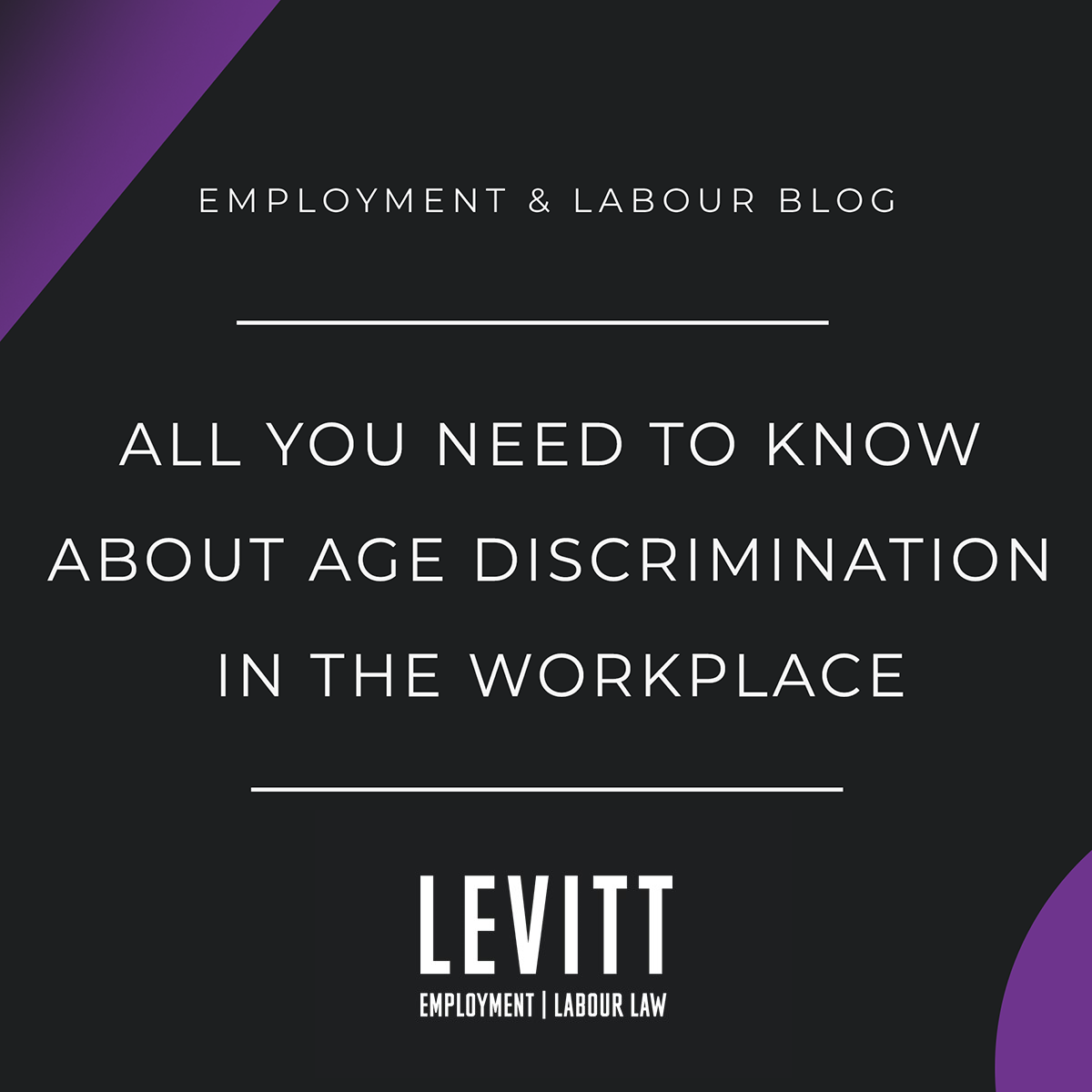Now that there is no more mandatory retirement in Ontario, all employees are welcome to work as long as they wish– some even well into their senior years– and many do. The reasons one might stay working past the “traditional” retirement age are numerous– perhaps the worker has no pension, maybe they love their job, or maybe they just want to keep busy with a structure they are familiar with.
Having older employees in the workplace can beneficial– they bring with them many years of skill, experience, and knowledge, especially if the same employer has employed them for decades. However, despite this, many employers might still find themselves hoping that their senior staff could be asked to leave and retire at age 65. Still, employers should be cautious, as asking senior staff to retire, or any comments alluring to retirement can amount to age discrimination under the Ontario Human Rights Code.
Let’s face it, getting rid of mandatory retirement was hugely beneficial for employees. Especially since modern medicine and science have greatly extended our life expectancies.
In the past, when the law was silent on the issue, many employers offered senior employees to work past 65– but only if they wanted to. Many employers wanted them to stay too and sometimes would even offer incentives for older employees to work past retirement age. In the past, it was also easier for employers to keep their younger employees too because they could offer positions that would open as older workers retired. Nowadays, “succession planning based on older workers moving on is itself a violation of the Human Rights Code,” according to the Financial Post.
Employers now face wrongful dismissal suits if they ask an older employee to leave prematurely. In addition, if an employer is found to dismiss older employees disproportionately, those employees could seek monetary damages or reinstatement from the Ontario Human Rights Tribunal.
To move forward, employers need to take into consideration greater severance packages, or amend existing employment agreements and protect themselves with a new termination clause (or, in the case of a unionized workplace, a new collective agreement) that limits the employee’s entitlement at termination. However, existing employees may be hesitant to accept reductions in severance entitlement. In those cases, a bonus or some other type of new benefit would need to be offered to the employee to encourage them to sign the new agreement for it to be enforceable.
Be warned, however: Offering incentives to employees for an early retirement based on age, even partly, is discriminatory and, therefore, illegal.
Contact Levitt LLP to learn more about age discrimination in the workplace and if you have a case as either the employee or employer. Choose Levitt LLP When Losing is Not an Option.






